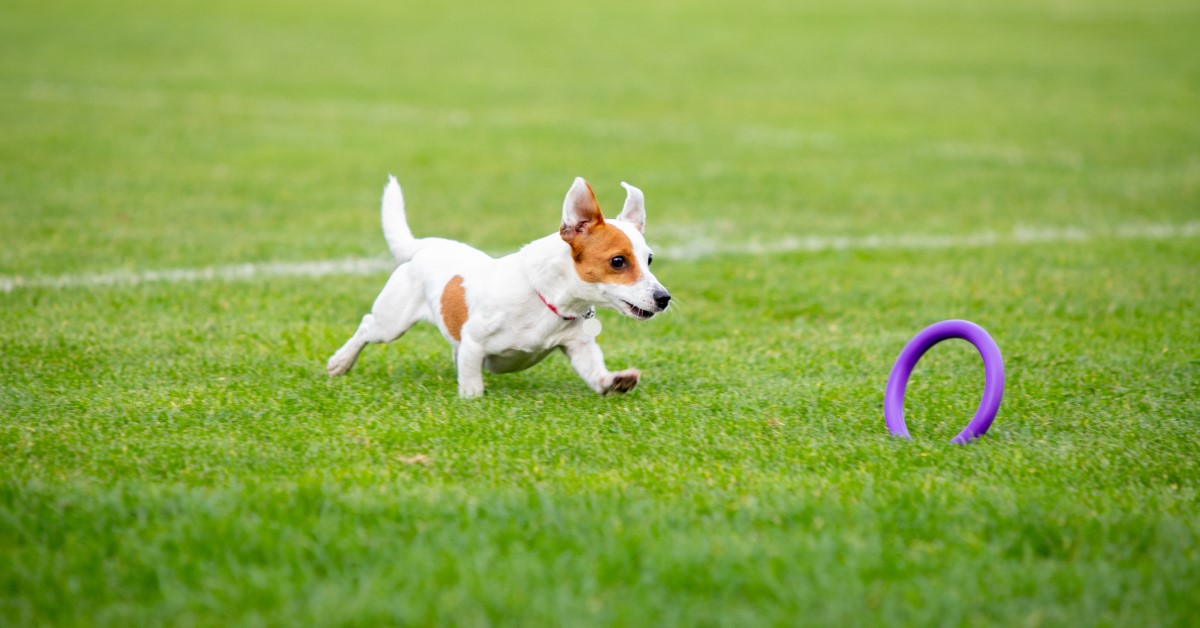Natural Remedies for Dog Anxiety
Dogs that experience stress or anxiety can benefit from natural remedies to help them stay calm and happy.

Our canine friends are usually so fun-loving, playful, and active that we have a hard time imagining them upset or depressed. However, just like their human companions, dogs can experience stress and anxiety.
Dog anxiety can develop for a wide range of reasons but most fall under three main categories: separation anxiety, illness-induced anxiety, and former rescue (or shelter) anxiety. If the cause of your dog’s anxiety cannot be determined, it is usually referred to as generalized anxiety and may occur due to a change in your pet’s environment or routine.
Some dog breeds are more prone to anxiety than others. A few of the most anxious dog breeds include Lagotto Romagnolos, Spanish Water Dogs, Wheaten Terriers, Shetland Sheepdogs, and Miniature Schnauzers. Mixed-breed dogs are more likely to develop an anxiety disorder than pure-bred dogs.
Ways to Calm Your Dog Naturally
Anxiety in dogs can lead to a variety of unusual behaviors, including drooling, panting, aggression, pacing, excessive barking, urinating or defecating in the house, and in some instances, destructive behavior. While anxiety medications are available for serious anxiety disorders, many pet owners prefer a more natural approach. To avoid the potential side effects and risks of medicating your pet, consider these options:
1. Exercise
Exercise is one of the best ways to help manage your dog’s stress and anxiety. Just like for humans, routine workouts can act as a stress reliever for dogs and help them remain calm. Regular exercise works to reduce anxiety in several ways. First, it helps stimulate serotonin production in the body, a chemical known to be a natural mood stabilizer. It also helps rid your dog of excess energy which could contribute to a buildup of tension. From long games of fetch in the yard to hikes in the countryside, anything that wears out your pet can be beneficial.
2. Music
If your pet suffers from separation anxiety when you leave home, consider playing music while you’re away. According to a study published by the University of Glasgow and the Scottish SPCA, music was found to be effective in reducing signs of anxiety in dogs. Remember that dogs’ hearing is better than yours, so don’t play music too loud. Stick with a calming playlist at a low volume to create a relaxed and comfortable environment.
3. Redirection
Some dogs will experience temporary anxiety when exposed to certain triggers, such as the sound of thunder or fireworks. When this happens, find a distraction for your pet. It can be useful to keep a box of new toys or bones in easy reach; a new toy or chew can help distract your dog until the uncomfortable stimuli have passed. You can also try providing some mental stimulus to redirect their attention, such as a puzzle that requires your puppy to slide, shift, or open compartments to discover small treats hidden inside.
4. Safe Space
Every dog should have a safe space where he can go to feel comfortable and secure. For many pets, this is their dog bed, kennel, or other cozy spot where they can engage in “nesting” behavior. Many dog breeds like to burrow, which makes a cave-style bed a great option to help them feel safe. Add a few favorite toys to their safe space and a comfort object with your scent, such as an old, unwashed t-shirt.
5. Natural Supplements & CBD for Dogs
If your dog regularly experiences stress or anxiety, consider a calming supplement. There are many supplements available on the market that use all-natural ingredients like I-tryptophan, L-theanine, melatonin, or chamomile. Another option to consider is hemp or CBD oil, which is derived from hemp. When used as instructed, CBD supplements can help cats and dogs with issues like anxiety, pain, aggression, seizures, tumors, and certain skin conditions.
6. Pet Massages
Humans are not the only ones that enjoy a relaxing massage. Dogs who experience high levels of stress and anxiety can also benefit from a long, gentle massage. A massage can help lower your dog’s blood pressure, help them relax, and relieve tension. Massage the top of the head, ears, and feet, as these are all natural pressure points. Just a 10-to-15-minute pet massage daily can have a positive impact on your furry friend’s mental state and behavior.
7. Essential Oils
Some types of essential oils can have a calming effect on animals, such as lavender oil. However, not all types of essential oils are right for dogs, so it’s important to speak with your vet about any oils that could be dangerous for your dog, as well as how much to use. Never apply essential oils directly to your pet and instead try an essential oil diffuser that disperses essential oils into the air.
Natural Solutions to Help Alleviate Dog Anxiety
Many dogs struggle with stress and anxiety that can lead to negative behaviors, such as constant barking or aggression. While there are many conventional medications on the market that can help dogs cope with their anxiety, this is not always the best route as certain drugs can put your pet’s health at risk. Natural remedies are generally safe and have been found highly effective in helping to calm anxious dogs. If your dog continues to experience stress or anxiety, speak with your vet about alternative treatment options.
Ready to start saving money on pet wellness care?
Then take a look at Mint Wellness, the pet wellness plan that provides fast reimbursement on routine pet care. Save on vaccinations, wellness exams, preventatives, dental, and more!
Learn More


